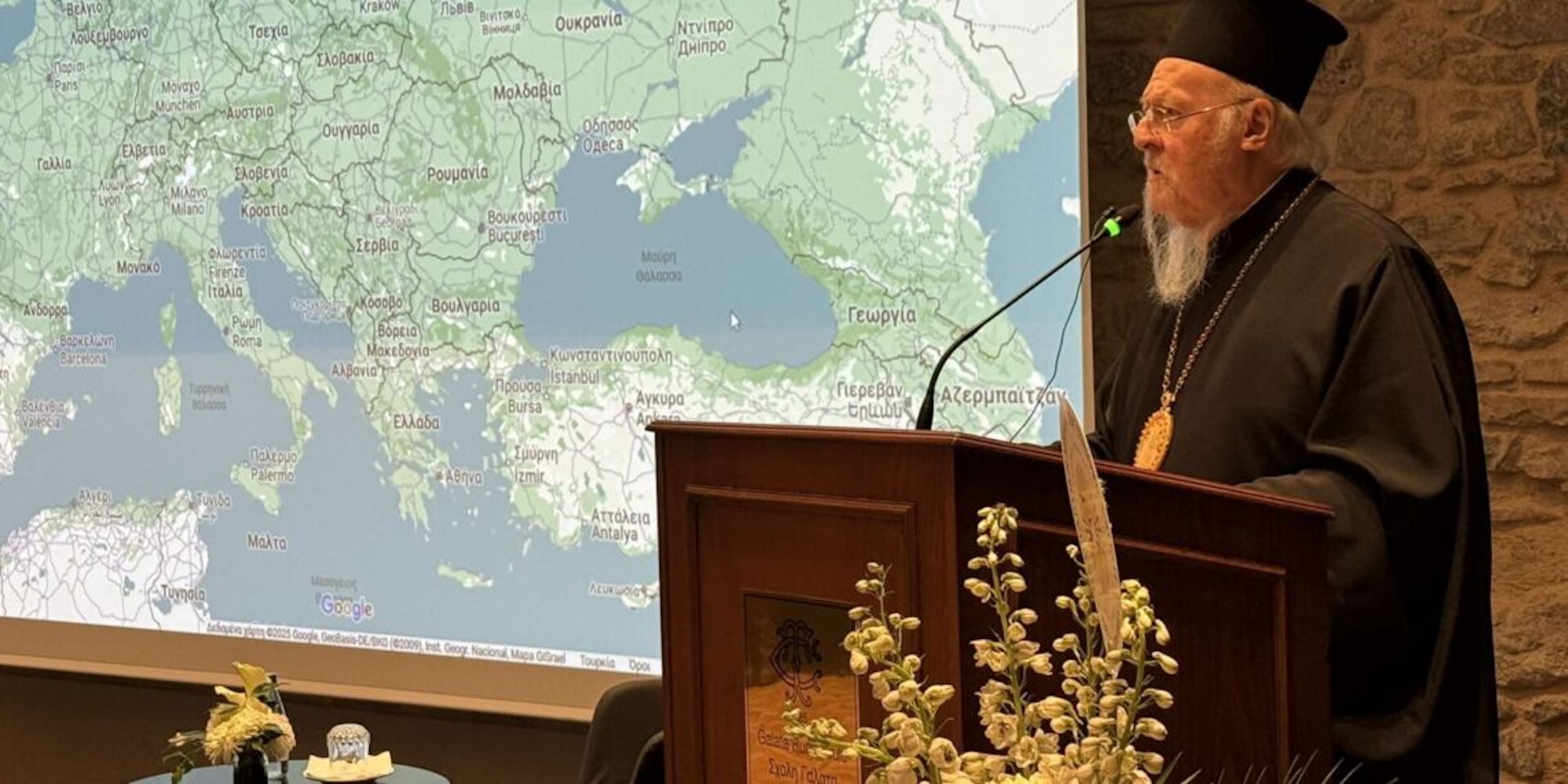His All-Holiness Ecumenical Patriarch Bartholomew has on several recent occasions brilliantly articulated the centrality of the Greek language in the formation of philosophy and Christian theology, and has emphasized the need to preserve it in its uniqueness and contributions to human thought.
On World Greek Language Day, Feb. 11, 2025, the Ecumenical Patriarch stated: “Rightfully and justly, we pay tribute today to the Greek language, aptly designated as the ‘mother tongue of the spirit.’” He added that Greek “serves as the key to entering what is perhaps the greatest intellectual paradise of the world. Here lie unique works that have left their mark on the course of world civilization: the Homeric epics, the Tragedies, the Platonic dialogues, the Aristotelian corpus, the New Testament, the writings of the Greek Fathers, and all the flourishing fruits of these roots.”
Addressing those who may assume that all languages are equivalent in their ability to express various kinds of human thought, His All-Holiness explained in 2021: “Language expresses the identity and the quality of the culture to which it belongs. It is not simply a means of communication, but ‘a carrier of moral values,’ as Elytis notes.” Ecumenical Patriarch Bartholomew was referring to the poet Odysseas Elytis (1911-1996), whose work he has singled out for praise on several occasions.
On World Language Day 2025, His All-Holiness explained some of the unique attributes of the Greek language, saying: “Indeed, an entire civilization passes through language. As a pre-eminent ‘philosophical language,’ the Greek language primarily names the essence, the being, the dimension of the depth of things, and not their usefulness. Great works of the human intellect are written in Greek. It has been said that philosophers, wherever they go, ‘think in Greek,’ and that anyone who speaks Greek is ‘almost impossible not to philosophize.’”
Consequently, the Ecumenical Patriarch said, “our language has never been merely a means of communication but also a bearer of high values, ethics, and culture. Greek is a language of contemplation and poetry; it expands the world’s mystery, reveals the depth of things rather than just the surface, and points to being and truth rather than appearance and utility. ‘To seek utility everywhere is least befitting to the magnanimous and the free,’ writes Aristotle, giving the imprint of truth as freedom (Politics 1338a, 30-32), a significant legacy even for our time.”
In light of these immutable qualities of the Greek language, the Ecumenical Patriarch added that “it is impossible for one who knows the Greek language not to philosophize and theologize. It has been rightly said that those who engage in philosophy, wherever they may be, ‘think in Greek.’” As a result, it was not accidental that Greek became the language in which the foundational texts of the Church’s theology were expressed: “Likewise, it is no coincidence that Greek became the central language of Christian theology. Through it, the great philosophical and theological achievement was realized: the authentic and admirable expression of the experience of salvation in Christ through the terminology of Greek philosophy. The union of Christianity and Hellenism was a decisive turning point not only in the course of the Church and theology but also in the history of thought and civilization.”
The centrality of Greek in Christian theology, His All-Holiness explains, is also due to the language’s poetic character. “Theology,” he said, “has never been mere ‘detached information’ about God. It is impossible to speak of the God of love and humanity’s unquenchable longing for eternity without our words becoming poetry and praise. There is no dullness in matters of faith. The hymnography of our Church is a literary marvel, a sublime hymn to the power and beauty of the Greek language. In general, authentic theological texts are closer to poetry than to prose.”
In light of all this, the Ecumenical Patriarch emphasized that one of the Church’s responsibilities was to preserve the Greek language in all its grandeur and uniqueness: “The Church’s enduring role in cultivating, enriching, preserving, and spreading the Greek word is indisputable. It established and operated schools and academies to promote both secular and Christian education, with the firm conviction that language and faith preserved our nation, continue to sustain us today, and are inextricably linked to our future. The learned Greek language still resonates in our ecclesiastical services, connecting Orthodox believers across the centuries in a shared glorification of God’s greatness.”
His All-Holiness also stated: “We take pride in the fact that the Greek language retains its universal character even today. For countless people worldwide, Greek serves as a source of inspiration and intellectual orientation. The works of ancient Greek thinkers and Christian Greek literature adorn the libraries of the world and are studied and discussed. Thousands of Greek or Greek-derived words are found in languages across the globe. Greek remains an inexhaustible source for the formulation of fundamental scientific terms. The cornerstone concepts of global civilization are Greek: logos, dialogue, ethics, politics, democracy, physics, history, pedagogy, music, anthropology, praxis, theory, and countless others. Indeed, Greek is ‘a language unparalleled among the 2,700 languages of the world.’”
The Archons of the Ecumenical Patriarchate note also the uniqueness of our beloved Ecumenical Patriarch, the longest-serving and one of the most consequential Ecumenical Patriarchs in the history of the Church. Εἰς πολλὰ ἔτη, Δέσποτα!







